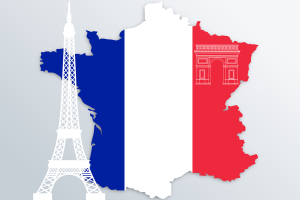
Insight
 By Vincent Delbos-Klein*
By Vincent Delbos-Klein*
Macron is the only sitting President to get reelected in 21st Century France

Paris: On April 24, 2022, Emmanuel Macron was once again elected as the President of France. Two days later, after reaching his campaign headquarter to celebrate and pay tribute to his supporters and party workers, he claimed that they made the impossible, possible.
Statistically, he said, “We had no chance”. This statement might seem a little bit surprising for those who didn’t pay attention to French politics in these recent years. After all, until a recent time in the French Fifth Republic, Charles de Gaulle, François Mitterand and Jacques Chirac, every president had been reelected. (The Fifth Republic (French: Cinquième République) is France’s current republican system of government established on October 4, 1958, by Charles de Gaulle).
However, since the 2000s, things started to change. Neither Nicolas Sarkozy nor François Hollande was reelected and it seemed that the double mandate tradition was no more. Several explanations are often cited with, at first, abstention. With 28% in 2002, 16% in 2007, 21% in 2012, 22% in 2017 and 26% in 2022, some commentators joke that silence is the first party in France.
And these statistics only describe the first tour. For the second, in 2022, abstention reached the record of 28% which is the highest rate since 1969. Furthermore, taking a look forward at this information brings some even more relevant information: 42% of the 18-25 and 46% of the 25-34 years old people and 33% of labour workers didn’t vote.
This situation leads us to two questions: why did people in France turn away from elections and why 2022 is an exception?
A first explanation can be found in the modern democratic systems and more specifically the French Fifth Republic’s fundamental schemes. Conservatives’ reflexes often lead people to renew their choice. Is the current situation satisfying? Maybe not, it could be better undoubtedly, but it could also be worst, so the balance between risk and the benefits convinces people to choose safety first. This effect applies beyond the political field, but it can explain why fear is such a powerful communication tool for politicians whose main goal is always to sustain their own power, sometimes at any price. Thus, it is well known that war is a very strong tool for this purpose to manipulate people, whatever the overall political assessment. Isn’t it what nationalist speeches and foreign enemies are made for: lead the herd of sheep, turn the herd away one from each other to make them fragile and empower their leaders? Well, I let the readers make their own opinion about it but what is for sure is that in this context and with no surprise, the threat of a global war in Europe dramatically emphasized Macron’s influence.
In this (not so discriminant at all) context, which were the challenges that the President had to face?
Let’s start with the right-wing and Valérie Pecresse who claimed that her one week off due to the coronavirus infection just before the election was the reason for her failure. In a context of a prosperous economy (mostly based on the exploitation of economically dominated countries), capitalist friendly politics can be convincing around the promises of a fair social pact. It can even make people forget that it is fundamentally unequal in its own structure, based on labour exploitation and on the reproduction of a dominant class. This was Nicolas Sarkozy’s campaign’s theme: work more to make more (“travailler plus pour gagner plus“). The secret of being rich – claims the right-wing – is simply to let people work. The other main argument of the right-wing was to destroy all the public services, all the institutions based on socialised resources: hospitals, schools, roads, transportation, culture, and care.
After the 2008 crisis and the threat of great economical collapse, many politicians put the weight of the historically gigantic debt on the states’ economies. This was a major strategical move to make fragile public institutions all over the world, especially in Europe, by selling them to private interests. Protected from the logic of private exploitation and profits, those institutions used to provide excellent services but then, a slow process of privatisation turned these services less efficient and the workers more and more under high tension. Thereby, it is now very hard for the right-wing to convince people with such arguments. In consequence, with such a lack of ideas to value, since now quite a long time, they focused their campaigns on the theme of security, by creating new threats, new enemies and new fears. In other words, they started to exploit the extreme right-wing topics, but of course, the fruits of this work came back to the extreme right-wing itself. As a result, the party “les républicain” led by Valérie Pécresse made such a bad score (4.78%), that under 5%, they can’t even claim a state subsidy.
Was the left-wing a more dangerous challenger though?
Considering the social situation described below and in the context of ecological disaster who wouldn’t bet on this hypothesis? It is now quite obvious for a significant part of the population that capitalism and its massive exploitation of natural resources is a deadly threat to life on earth. However, the two main left-wing parties involved in this cause couldn’t find a breeding ground to make an alliance. Actually, there were even five challengers on the left-wing. France Insoumise made around 22%. This relatively good result is based on the strong personality of its leader Jean-Luc Mélenchon and also the status of a party which is still an outsider compared to its historical challengers but also an established political force for more than ten years.
Why outsider parties are powerful in France is a key to understanding the political situation. For years, the socialist party used to be the historical left-wing dominant party in France. However, in the context of globalization and the rising of neo-liberalism which, according to sociologist Pierre Bourdieu is “a program of destruction of the structure of the collective ability to resist against the logic of a pure market”, Left-wing governments failed to reach their promises. Thus, despite a historical election that put the socialist party in power in 1981, a famous event called “the turn of rigour” that happened in 1983 made them apply a liberal political right contrary to their promises. This event had a major aftereffect on left-wing people who felt betrayed, especially labour people.
Left-wing, especially in France is historically divided into two lines: The social line focused on the economical dimension, class struggle tradition; and the society line, which focused on empowerment and support for anti-racism, lgbtq+, handicapped people, feminism and many others. Whoever takes a closer look can testify to many divisions.
For example, the very unavoidable book by Luc Boltanski and Ève Chiapello, “New Spirit of Capitalism“. It explains how one part of the left activism during the 70s and the 80s, which asked for more autonomy, more flexibility and more self-expression at work led to a deep de-structuring of professional models in the heart of the neoliberal wave. To summarise, Melenchon had to deal with this balance of a divided left-wing, but also with a very strong mediatic opposition.
It is a long time proven rule that social reproduction leads to a concentration of powers: economical social and mediatic powers in particular. In this context, 81% of the daily and 95% of the weekly newspaper, 47% of the radio, 57% of the main television and 44% of news websites are owned by only eleven billionaires. This explains why people massively vote against their own interests: they are represented in media by the voices of rich people whose interests are rich people’s interests. In a recent television show, a famous TV presenter claimed that Melenchon was a freedom killer because in his programme he considers that people whose income is over €4000 are rich.
While listening to him, you might be seized with dread, figuring a vampire sucking your precious blood, the fruit of yeard, a hard work. The problem is that 91% of French people make less than €4000 a month and if Mélenchon indeed puts a threshold of the total tax, it may be over €30000 a month. In other words, it might be a concern for less than 1% of the population. But the representation in media makes it a problem for the 100%.
Considering this situation, we can, without exaggerating, describe the media treatment as a red carpet rolled out in favour of Emmanuel Macron, but still, is it enough to convince a population who discovered during the COVID-19 crisis that austere politics had made to disappear thousand of beds in hospitals? Can people forget how violent was the police repression against the yellow vest movements and the dozen of seriously injured people, sometimes with permanent sequels such as a lost eye or brain damage? Probably not, but Macron had another (not so) secret weapon: the extreme right-wing.
We had two extreme right-wing challengers this year: the traditional Marine Le Pen’s party came with 23.5% and an outsider, more violent, coming from TV and called Eric Zemmour, came with 7%. Both of them probably became fragile by the war in Ukraine since it is obvious that Vladimir Putin supports extreme right-wings to destabilize European countries even more. Without any surprise, during the final debate with Le Pen, Macron pointed at the economical dependency of his challenger on Russia since her party, the Rassemblement National, took a loan directly from a Putin-friendly Russian bank. The manoeuvre was quite obvious but extremely efficient.
To bet on the extreme right-wing is now a long term political strategy for many parties in France. We observed with the right-wing party’s example that it is structurally advantageous for them to exploit fear and anger. But after years and years, this strategy has made fear and anger commonplace for everyone. Trapped in a vicious circle, almost every party started to point at minorities to earn points in this grisly game. Those who refuse to play this game take the risk to be designated as partners in crime. Before world war II, the Jewish community was frequently endangered by this phenomenon, now the national main tendency is to target the Muslim community. Eventually, when in the second tour one candidate faces an extreme right-wing candidate such as Marine le Pen for the third time, people gather to resist and massively vote, most of them not for Macron, but against Le Pen. This is how Macron and his liberal programme wins in 2017 and 2022.
However, as we could see before: politicians mostly make plans for their own future, which in France is limited to two mandates of five years each. In another term, they don’t much care about the ‘frog effect’: this metaphor of a frog in a pan who doesn’t feel that the water is slowly getting warmer and warmer. One day, after all these years spent rubbing the lamp, the demon might eventually arise and it will be a concrete threat, not only to Muslim people but also to all minorities and everyone.
**Vincent Delbos-Klein is a Paris-based filmmaker and a researcher in sociology. The views expressed are personal.


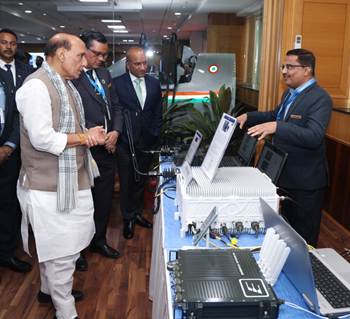
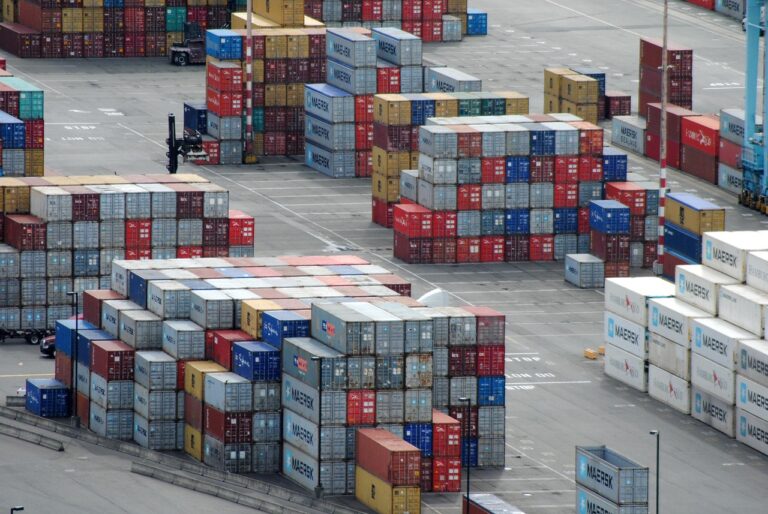
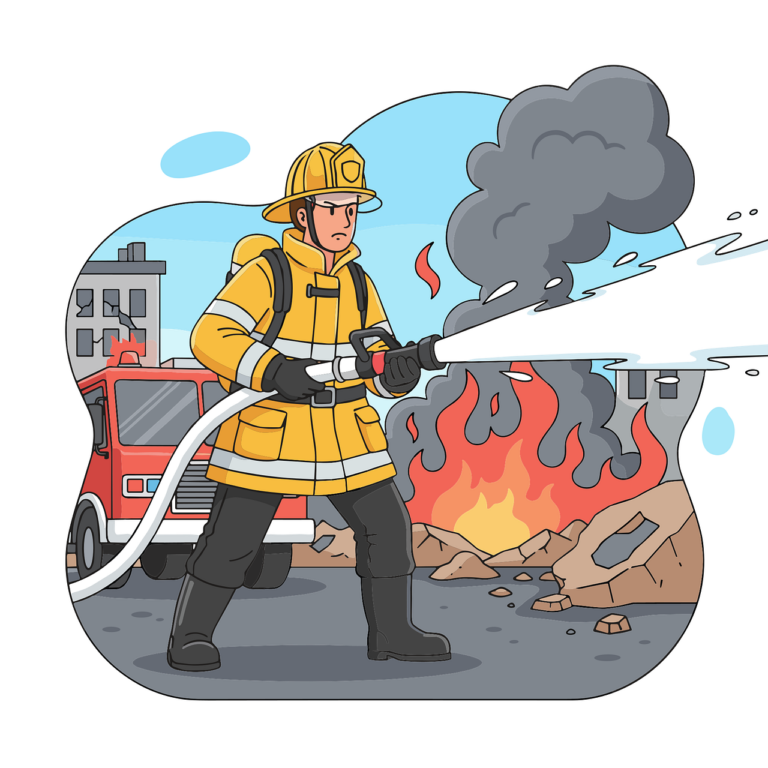
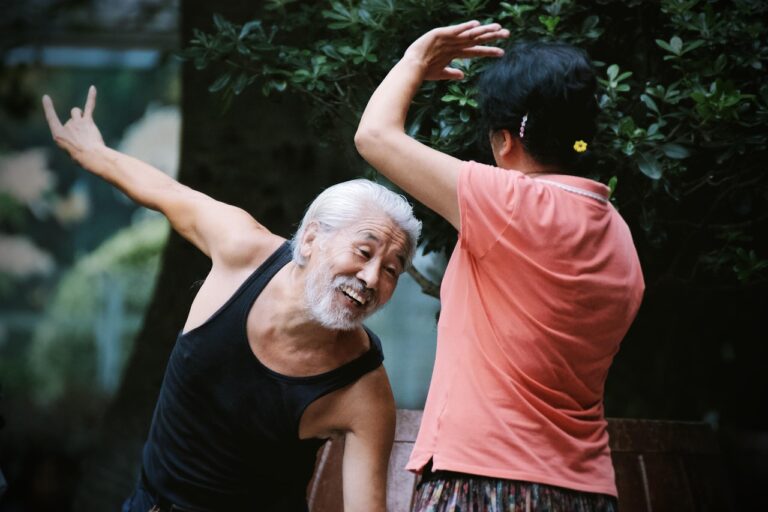
Note : Jean-Luc Melanchon is considered as an extreme-left party in France, hence the strong opposition from both medias and people voting for right wing parties.
Dear Vanta, thanks for your reply. As I analyse in this article, “extreme” is a readymade concept made by media to discredit any kind of resistance toward the domination of extreme capitalism. Due to this great communication program, there is a great distortion between people’s feelings about their own interests and reality. That is why I mentioned the reality of the Melenchon’s program, the irrational fears that it produces and the fact that objectively, a very high percentage of the population would dramatically gain from his election.